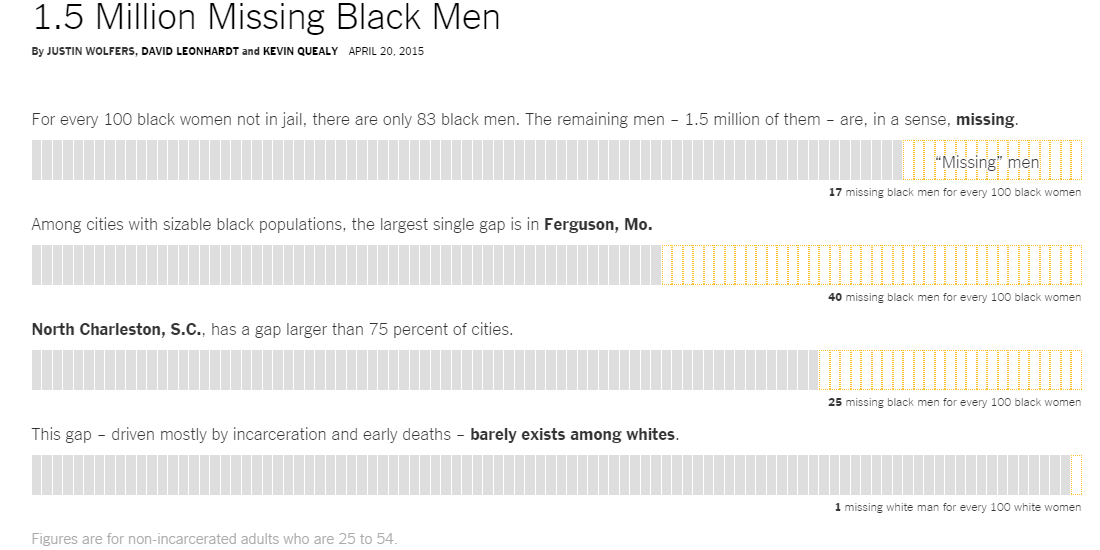Tuesday, April 21, 2015
rule of law's slow, cold, vicious violence...,
By
CNu
at
April 21, 2015
3
comments
![]()
Labels: niggerization , Rule of Law
what a 1.5 million mentholated americanized negroe shortage means in practice
By
CNu
at
April 21, 2015
2
comments
![]()
Labels: Race and Ethnicity
what a lake mead water shortage will mean in practice
 |
| Lake Mead Water Level |
- It takes many more years of shortage before California loses a drop.
- Arizona’s major on-river agricultural water users, primarily the Colorado River Indian Tribes and the farmers of the Yuma area, also would not lose a drop under a shortage. Their rights are older, and not crimped by the 1968 California bargain.
By
CNu
at
April 21, 2015
0
comments
![]()
Labels: Irreplaceable Natural Material Resources , weather report
Monday, April 20, 2015
compulsory community labour? non-negotiable doesn't end well
 |
| Before "Greening" |
 |
| After "Greening" |
"This is how the Axumite kings got stuff done 2,000 years ago," says my guide Zablon Beyene. "With the same tools, too."
By
Dale Asberry
at
April 20, 2015
3
comments
![]()
Labels: cooperation , ecosystems , Irreplaceable Natural Material Resources , People Centric Leadership , What IT DO Shawty...
the anthrax coverup exposed
the neo-Nazi PATRIOT Act. Both senators had negotiated with the Bush regime changes in the act that made it less tyrannical. However, the changes were not in the final draft of the act sent to Congress. Consequently, Leahy and Daschle were resisting the rush to passage. I have often wondered if Leahy and Daschle understood the anthrax letters to be Washington’s warning: “Get out of the way of Tyranny or we will kill you.”
By
CNu
at
April 20, 2015
0
comments
![]()
Labels: 2parties1ideology , American Original , clampdown , Living Memory
municipal, county, state, and feds all engage in intentional personnel mismanagement...,
Read more here: http://www.sacbee.com/news/investigations/the-public-eye/article18239552.html#storylink=cpy
By
CNu
at
April 20, 2015
0
comments
![]()
Labels: Collapse Crime , What IT DO Shawty...
big thinker says seattle has too much water
By
Dale Asberry
at
April 20, 2015
0
comments
![]()
Labels: Ass Clownery , Collapse Casualties , Irreplaceable Natural Material Resources
Sunday, April 19, 2015
pan-troglodytic deuterostems are simply incapable of being reasoned with...,
Religion appears to play an important role in shaping the numbers. Born-again Christians are more likely than overall poll respondents, 58 percent to 35 percent, to back Israel regardless of U.S. interests. Americans with no religious affiliation were the least likely to feel this way, at 26 percent.The primary reason evangelical Christians in the U.S. are so devoted to Israel is simple: their radical religious dogma teaches them that God demands this. In 2004, Pat Robertson delivered a speech entitled “Why Evangelical Christians Support Israel” and said: “evangelical Christians support Israel because we believe that the words of Moses and the ancient prophets of Israel were inspired by God,” and “we believe that the emergence of a Jewish state in the land promised by God to Abraham, Isaac, and Jacob was ordained by God.” He added that “God’s chosen people” — Jews — have an obligation to God to fight against “Muslim vandals” so that Israel remains united in their hands
By
CNu
at
April 19, 2015
14
comments
![]()
Labels: Bibtardism , the wattles
pan-troglodytic deuterotypes programmed for denial..,
By
CNu
at
April 19, 2015
0
comments
![]()
Labels: ethology , helplessness , killer-ape , neurotypes
primed primates believe climate change is happening, just not to them...,
By
CNu
at
April 19, 2015
0
comments
![]()
Labels: ethology , partisan , weather report
Saturday, April 18, 2015
why you pan-troglodytic deuterostems will get exactly what you deserve...,
By
CNu
at
April 18, 2015
15
comments
![]()
Labels: ethology , killer-ape , partisan , What IT DO Shawty...
Friday, April 17, 2015
The Anti-Ghetto
- Refuses to listen to music or support artists that glorify ghetto culture and ideals
- Refuses to degrade themselves in speech, dress, or demeanor as ghetto culture allows and encourages
- Refuses to be depend on government assistance as a way of life, especially when the benefits are not necessary for survival
- Refuses to glory in ignorance but values education in all forms, both formal and informal
- Makes empowerment not only a goal, but a lifestyle
- Respects themselves and others
- Obeys just laws and works to change unjust laws
- Honors their own bodies through proper nutrition, exercise, and moderation in delicacies and non-nutritional consumables
- Speaks with dignity and respect for self and the environment he or she is in
- Seeks to act as an agent of change and shine as a beacon of hope for others who wish to live above and beyond the ghetto
By
CNu
at
April 17, 2015
17
comments
![]()
Labels: People Centric Leadership , Race and Ethnicity , What IT DO Shawty...
The GOTUS
'with four years as her nation's chief diplomat on the world stage under her belt, Mrs Clinton's personal gravitas is even harder to quibble with than it might have been in 2008'.
'On foreign policy, her spell as secretary of state leaves her with a somewhat clearer record - she is associated with a rather more interventionist approach than Mr Obama. Her admirers would describe her as a happy mix of the smart and the muscular; doubters will recall her vote for the ruinous invasion of Iraq in 2003, and prefer the Obama-esque oath to first do no harm.'
By
CNu
at
April 17, 2015
0
comments
![]()
Labels: Clintonian Imperative , GOTUS , Granny Goodness
annex to the clinton plan for africa...,
By
CNu
at
April 17, 2015
0
comments
![]()
Labels: Clintonian Imperative , Living Memory , Pimphand Strong , reality casualties
Thursday, April 16, 2015
jew-hating misery conservatards like the ones opposing the preznit on iran...,
By
CNu
at
April 16, 2015
0
comments
![]()
Labels: Bibtardism , Race and Ethnicity , the wattles , theoconservatism , What IT DO Shawty...
please sir, I want some more...,
By
CNu
at
April 16, 2015
0
comments
![]()
Labels: conspicuous consumption , Great Filters , Irreplaceable Natural Material Resources , just-us , lifestyle
in this game of musical chairs - pensioners will be ruthlessly flung from the deck of the Titanic
By
CNu
at
April 16, 2015
0
comments
![]()
Labels: Collapse Casualties , What Now?
say mister, I love the way you wear that hat...,
By
CNu
at
April 16, 2015
0
comments
![]()
Labels: Bibtardism , the wattles , theoconservatism , What IT DO Shawty...
Wednesday, April 15, 2015
conservatards want a can't we all just get along dialogue now...,
By
CNu
at
April 15, 2015
14
comments
![]()
Labels: just-us , propaganda , Rule of Law
bill o'lielly declares "it's open season on christians and white men...,
By
CNu
at
April 15, 2015
0
comments
![]()
Labels: Ass Clownery , po thang...
Chipocalypse Now - I Love The Smell Of Deportations In The Morning
sky | Donald Trump has signalled his intention to send troops to Chicago to ramp up the deportation of illegal immigrants - by posting a...

-
theatlantic | The Ku Klux Klan, Ronald Reagan, and, for most of its history, the NRA all worked to control guns. The Founding Fathers...
-
NYTimes | The United States attorney in Manhattan is merging the two units in his office that prosecute terrorism and international narcot...
-
Wired Magazine sez - Biologists on the Verge of Creating New Form of Life ; What most researchers agree on is that the very first functionin...







